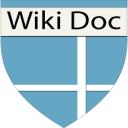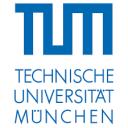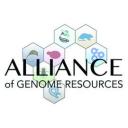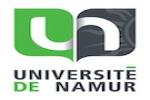MOST POPULAR
The Mouse Tumor Biology (MTB) Database supports the use of the mouse as a model system of hereditary cancer providing online access to a variety of information on tumor models, genetic factors, tumor pathology, etc. Registration not required.
Click here for more informations
Add to my favorites
Remove from my favorites
I-TASSER server is a web application for protein structure and function predictions. Models are built based on multiple-threading alignments by LOMETS and iterative TASSER simulations. I-TASSER (as 'Zhang-Server') was ranked as the No 1 server in recent CASP7 and CASP8 experiments. The server is in active development with the goal to provide accurate structural and function predictions using state-of-the-art algorithms. References: Ambrish Roy, Alper Kucukural, Yang Zhang. I-TASSER: a unified platform for automated protein structure and function prediction. Nature Protocols, vol 5, 725-738 (2010). Registration not required.
Click here for more informations
Add to my favorites
Remove from my favorites
A new HUB for Biomedical Lovers!
Category: Biomedical communities
Biomedical Times is a HUB where Biomedical Engineers / Scientists from around the world can connect and share and learn from the available resources. Registration not required.
Click here for more informations
Add to my favorites
Remove from my favorites
a global community where researchers connect
Category: Biomedical communities
ResearcherID provides a solution to the author ambiguity problem within the scholarly research community. Each member is assigned a unique identifier to enable researchers to manage their publication lists, track their times cited counts and h-index, identify potential collaborators and avoid author misidentification. In addition, your ResearcherID information integrates with the Web of Science and is ORCID compliant, allowing you to claim and showcase your publications from a single one account. Search the registry to find collaborators, review publication lists and explore how research is used around the world! Registration required.
Click here for more informations
Add to my favorites
Remove from my favorites
Category: Biomedical funding and jobs
Subcategories: Jobs , fellowships
The site lists positions offered at Universities, Academies, Colleges, Faculties, Schools, Academic Departments, Institutes and Research Centers. It is possible to post a job request. The list of offered positions is free, posting a job and premium adverts require payment. Registration not required.
Click here for more informations
Add to my favorites
Remove from my favorites
connecting research and researchers
Category: Biomedical communities
As researchers and scholars, you face the ongoing challenge of distinguishing your research activities from those of others with similar names. You need to be able to easily and uniquely attach your identity to research objects such as datasets, equipment, articles, media stories, citations, experiments, patents, and notebooks. As you collaborate across disciplines, institutions and borders, you must interact with an increasing number and diversity of research information systems. Entering data over and over again can be time-consuming, and often frustrating. ORCID is an open, non-profit, community-driven effort to create and maintain a registry of unique researcher identifiers and a transparent method of linking research activities and outputs to these identifiers. ORCID is unique in its ability to reach across disciplines, research sectors and national boundaries. It is a hub that connects researchers and research through the embedding of ORCID identifiers in key workflows, such as research profile maintenance, manuscript submissions, grant applications, and patent applications. ORCID provides two core functions: (1) a registry to obtain a unique identifier and manage a record of activities, and (2) APIs that support system-to-system communication and authentication. ORCID makes its code available under an open source license, and will post an annual public data file under a CC0 waiver for free download. The ORCID Registry is available free of charge to individuals, who may obtain an ORCID identifier, manage their record of activities, and search for others in the Registry. Organizations may become members to link their records to ORCID identifiers, to update ORCID records, to receive updates from ORCID, and to register their employees and students for ORCID identifiers. ORCID records hold non-sensitive information such as name, email, organization and research activities. ORCID understands the fundamental need for individuals to control how their data are shared, and provides tools to manage data privacy. We take steps to protect your information, consistent with the principles set forth in our Privacy Policy, which are intended to comply with the Safe Harbor Principles issued by the U.S. Department of Commerce. Registration required.
Click here for more informationsCodeacademy is an online interactive platform for those who want to learn programming on their own. It offers free classes on 12 different programming languages including Python, Java, PHP, JavaScript (jQuery, AngularJS, React.js), Ruby, SQL, and Sass, as well as markup languages HTML and CSSIt. Codeacademy is a tutorial that mainly teaches you the syntax of a programming language. Registration required.
Click here for more informationsThe ProteomeTools project is a joint effort of the Technical University of Munich (TUM), JPT Peptide Technologies, SAP SE and Thermo Fisher Scientific. It is dedicated to translating the human proteome into molecular and digital tools for drug discovery, personalized medicine and life science research. Over the course of the project, ~1.4 million synthetic peptides covering essentially all human gene products including important post translational modifications will be synthesized and analyzed using multimodal LC-MS/MS. We welcome participation to the project by the scientific community by e.g. suggesting sets of peptides to synthesize, offering measurements using other types of LC-MS/MS or developing applications and data analysis tools. Registration not required.
Click here for more informationsDescription not available. Registration not required.
Click here for more informationsThis web site offers free resources for students and researchers working with statistics. All the calculators and tools featured here have been designed with ease of use and clarity of presentation in mind. The web site has three main sections: statistical calculators, which deals mainly with hypothesis testing; p-value calculators, which allow you to derive p-values from Z, t, chi-square and Pearson (r); and descriptive statistics - averages, variance, and easy histogram and bar chart makers. Registration not required.
Click here for more informations
Add to my favorites
Remove from my favorites
Category: Biomedical funding and jobs
Subcategories: Funding
ESF is a strong international network of 75 research funding, performing organisations and academics. ESF offers a number of opportunities, scientific and non-scientific, and provides career opportunities that could progress in management and administrative science activities. Registration required.
Click here for more informations
Add to my favorites
Remove from my favorites
free, online, open-source curated knowledgebase of biological pathways
Category: Pathways
Reactome allows: to analyse pathways, to visualize pathways
Reactome is a free, online, open-source curated knowledgebase of biological pathways for several species, encompassing many areas of human biology (D Croft et al., Nucleic Acid Res 39, D691, 2011). Registration not required.
Click here for more informations
Add to my favorites
Remove from my favorites
The Living Textbook of Medicine
Category: Literature search
WikiDoc was created to freely share medical knowledge and to foster collaboration among healthcare providers. Launched by Dr. C. Michael Gibson of Harvard Medical School in late 2005, WikiDoc is the first and largest wiki dedicated to medicine on the Internet. WikiDoc is kept up to date by over 5,000 collaborators around the world. The content has now been updated nearly half a million times. There is no pharmaceutical or device industry support for the site. WikiDoc is intended to be a free shared resource for housestaff (in preparation for morning report), medical students (in preparation for morning rounds) and fellows (in preparation for conferences). Nurses and attending physicians may find WikiDoc valuable in improving and maintaining their fund of general medical knowledge. Registration not required.
Click here for more informations
Add to my favorites
Remove from my favorites
match your article to Elsevier journals
Category: Biomedical journals
Elsevier Journal Finder allows: find journals for publishing your scientific article, to match your article to Elsevier journals
Elsevier Journal Finder helps you find journals that could be best suited for publishing your scientific article. It uses smart search technology and field-of-research specific vocabularies to match your article to Elsevier journals. Simply insert your title and abstract and select the appropriate field-of-research for the best results. Registration not required.
Click here for more informationsQCancer is an algorithm, which can be used to calculate the absolute risk of a patient having an undiagnosed cancer based on a number of factors.The QCancer algorithm and the cancer risk score take into account patient symptoms, risk factors, such as age and sex, smoking status, family history, postcode and certain comorbidities. Registration not required.
Click here for more informations
Add to my favorites
Remove from my favorites
simple, interactive way to visualize the impact of COVID-19
Category: COVID19
Description not available. Registration not required.
Click here for more informationsChemSpider is a free-to-access collection of compound data from across the web, that offers text and structure searching to find compounds of interest and provides unique services to improve this data by curation and annotation and to integrate it with users’ applications. Registration not required.
Click here for more informationsWormBase is the repository of mapping, sequencing and phenotypic information for C. elegans (and some other nematodes). The worm informatics group at the Sanger Institute play a key role in assembling the whole database (a new release occurs every three weeks). Registration not required.
Click here for more informationsThe web site presents a collection of normal and pathological digitalized histological sections that can be easily navigated and observed at various magnifications Registration not required.
Click here for more informations
Add to my favorites
Remove from my favorites
Resource Identification Portal
Category: Biomedical products search, Biomedical journals










